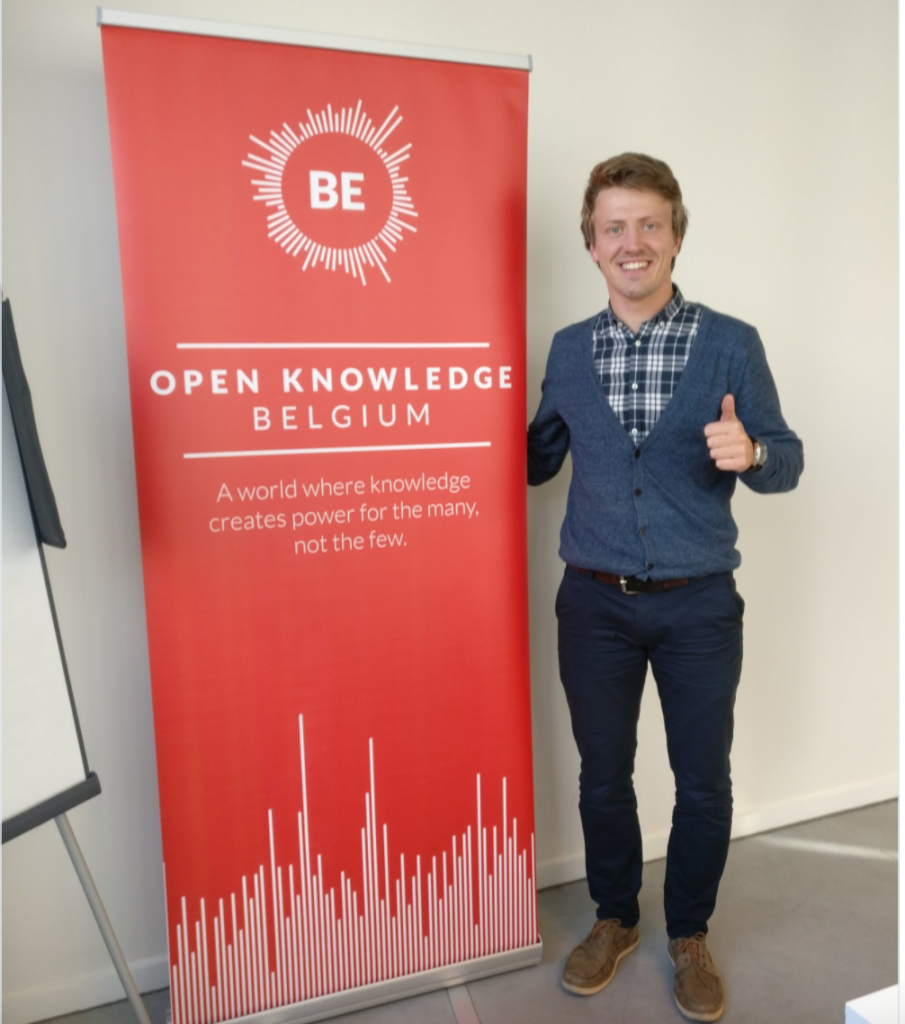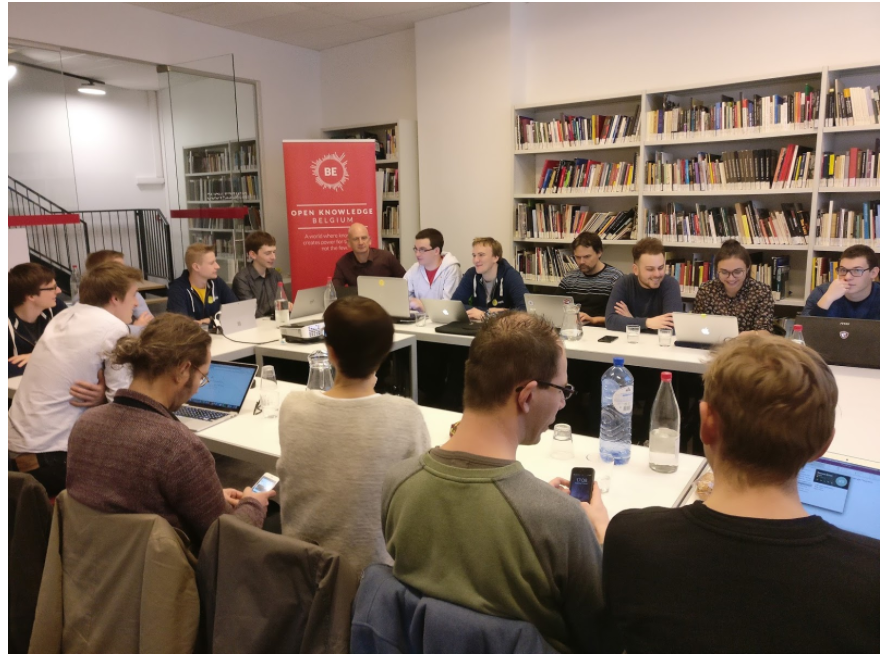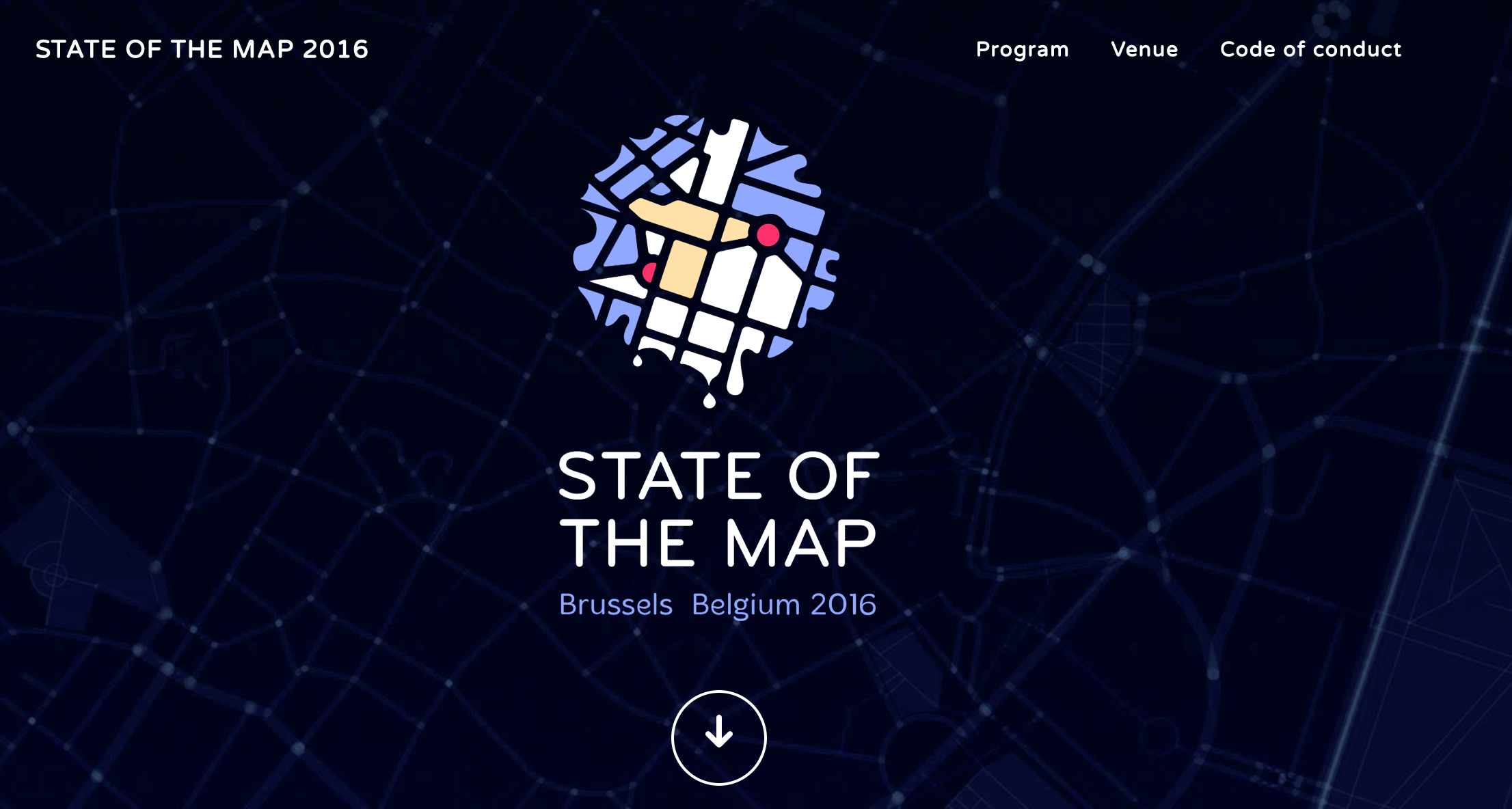This blog post is part of our on-going Network series featuring updates from chapters across the Open Knowledge Network and was written by the Open Knowledge Belgium team.
A lot of things has happened over the past few months at Open Knowledge Belgium. First, we welcomed Dries Van Ransbeeck as the new project coordinator. His previous experience ranges from data modelling, civic engagement to crowdsourcing. He also has a keen interest in open innovation and the power of many intrinsically motivated individuals contributing to projects with social and societal impact, serving the interests of the many rather than the happy few.

Dries’ mission is to bring Open Knowledge and Open Data to a level playing field, where people with all sort of backgrounds, technical and non-technical can use, reuse and create knowledge in a sustainable way. Read more on Dries here. We also moved to a new office space in Brussels and welcomed three new interns: Chris, Umut and myself [Sarah] who will be helping the team for the next few months. Below are the latest updates of our activities:
Open Belgium Conference
Our annual conference was held on March 6 in Brussels, with the theme: ‘Open Cities and Smart Data’. There were talks and discussions about how Open Data can contribute to smart urban development, the rise of smart applications and the shift from raising the quantity of data to raising the quality of data. About 300 industries, researchers, government and citizen stakeholders were expected for the conference to discuss various open efforts in Belgium. More will be shared later.
Open Education
An interesting Kickoff meeting about Open Education was held in February to discuss the possibilities of opening up educational data in Belgium. This bottom-up action is needed in order to make things possible and keep the discussion alive. Business owners, data providers, data users and problem owners sat together and discussed the possibilities concerning open educational resources (OER) and open educational practices.
While students and staff want information which is up-to-date and easy to find, most colleges are unwilling to open up their data which is very problematic because opening up educational data to build applications would make things a lot easier for students as well as the colleges themselves. Another issue that was identified is the fact of every educational institution working with a different database.
It was, therefore, interesting to discuss an open data standard for every college or university. We can solve these problems by giving educational institutions more concrete information about what data they have to open up and what the consequences are. Therefore, this working group could contribute to the discussions on the possibilities of Open Education and create extra pressure on colleges and universities to open up their data and provide them with more information.
OpenStreetMap Belgium
The biggest achievement for OSM Belgium in 2016 was co-organizing SOTM (State of the Map) in Brussels, which is the yearly international conference on OpenStreetMap. Our community for OpenStreetMap is growing and thanks to the help of many enthusiastic volunteers, SOTM was a great success.
For 2017, OSM plans to formalise their organisation by setting up a membership and some very basic governance rules. By doing this, they want to provide some structure and support for future projects. OSM will continue to stay an open community as it always has been. The main goal of OSM is to communicate in a better way about their ongoing projects so as to attract sponsorships for the new year. They’re also collaborating more closely with other organisations which share the same goals.
Open Badges Belgium
We have also recently started a new working group who wants to help spread the use of Open Badges in Belgium. An Open Badge is a digital platform where you can showcase the talents you have acquired and share them with the labour market. They are visual tokens of achievement or other trust relationship given by training centres, companies and selection agencies and are also shareable across the web.
Open Badges are more detailed than a CV as they can be used in all kinds of combinations, creating a constantly evolving picture of a person’s lifelong learning. To learn more about how Open Badges work, watch our introductory video here.
Oasis
Oasis is the acronym for ‘Open Applications for Semantically Interoperable Services’. This is a cooperation between the city of Ghent and the region of Madrid to increase the accessibility of public services and public transport. Both cities work together and publish linked open data to prove that new technologies can lead to economies of scale, such as the creation of cross-country applications.
To read up on Open Knowledge team and our activities please visit www.openknowledge.be or follow us on Twitter, Facebook and Linkedin.
Sarah is a communications intern at Open Knowledge Belgium - the umbrella organisation for Open Knowledge initiatives in Belgium and the local chapter of the international Open Knowledge network.










